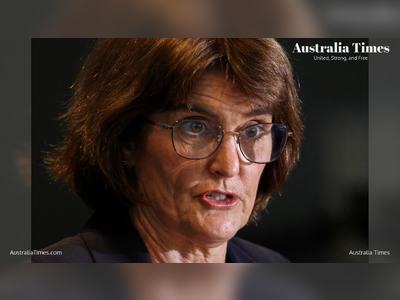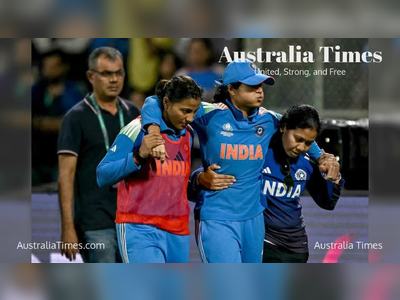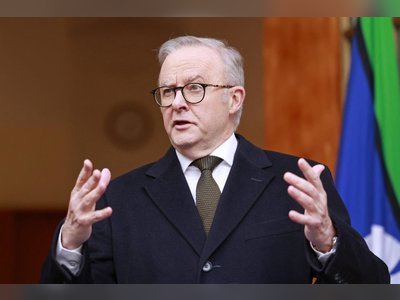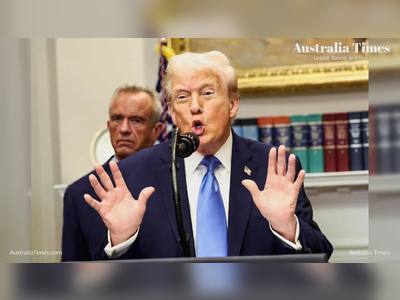Australia Urged to Step Up as US Cuts Threaten Global Health Security
Former US Centers for Disease Control chief warns Canberra must act as Washington retreats from key health programmes
Australia must take greater responsibility for global health leadership following deep funding cuts by the United States, according to former Centers for Disease Control and Prevention (CDC) director Tom Frieden.
Speaking to Australian media, Frieden pointed to a string of actions by the Donald Trump administration: withdrawal from the World Health Organization (WHO), a proposed more than fifty-per-cent cut in CDC funding, elimination of thousands of CDC jobs, and over one billion dollars in cuts to the vaccine coalition Gavi.
Frieden warned these moves could cost millions of lives, particularly in low- and middle-income countries, unless other nations stepped up.
“Health is not a zero-sum game,” he said.
“When one country is well, it strengthens the world.
If the United States retreats, others must step up to prevent catastrophic and preventable loss of life.”
Australia, for its part, is responding.
A spokesperson for the Department of Health, Disability and Ageing noted Canberra is actively participating in the WHO’s strategic realignment and is establishing an independent national public-health agency: the Australian CDC, due to launch in January.
The facility will consolidate technical expertise from across government, liaise with international partners and strengthen disease surveillance domestically.
Health experts say the timing is critical.
In the Indo-Pacific, emerging threats such as antimicrobial resistance, climate-driven disease shifts and vaccine-preventable outbreaks are rising.
Prof. Allen Cheng of Monash Health cautions that while Australia is resilient, weaker global institutions may still pose risks: “We’re now having to look twice at everything coming from the U.S. to check.”
Frieden and others emphasise the importance of robust primary-healthcare systems, laboratory capacity and rapid data-sharing.
They argue these are foundational to preparedness.
With the U.S. scaling back its global aid footprint, Australia faces a pivotal moment to fill the gap and bolster global health security for the region and beyond.
Speaking to Australian media, Frieden pointed to a string of actions by the Donald Trump administration: withdrawal from the World Health Organization (WHO), a proposed more than fifty-per-cent cut in CDC funding, elimination of thousands of CDC jobs, and over one billion dollars in cuts to the vaccine coalition Gavi.
Frieden warned these moves could cost millions of lives, particularly in low- and middle-income countries, unless other nations stepped up.
“Health is not a zero-sum game,” he said.
“When one country is well, it strengthens the world.
If the United States retreats, others must step up to prevent catastrophic and preventable loss of life.”
Australia, for its part, is responding.
A spokesperson for the Department of Health, Disability and Ageing noted Canberra is actively participating in the WHO’s strategic realignment and is establishing an independent national public-health agency: the Australian CDC, due to launch in January.
The facility will consolidate technical expertise from across government, liaise with international partners and strengthen disease surveillance domestically.
Health experts say the timing is critical.
In the Indo-Pacific, emerging threats such as antimicrobial resistance, climate-driven disease shifts and vaccine-preventable outbreaks are rising.
Prof. Allen Cheng of Monash Health cautions that while Australia is resilient, weaker global institutions may still pose risks: “We’re now having to look twice at everything coming from the U.S. to check.”
Frieden and others emphasise the importance of robust primary-healthcare systems, laboratory capacity and rapid data-sharing.
They argue these are foundational to preparedness.
With the U.S. scaling back its global aid footprint, Australia faces a pivotal moment to fill the gap and bolster global health security for the region and beyond.
AI Disclaimer: An advanced artificial intelligence (AI) system generated the content of this page on its own. This innovative technology conducts extensive research from a variety of reliable sources, performs rigorous fact-checking and verification, cleans up and balances biased or manipulated content, and presents a minimal factual summary that is just enough yet essential for you to function as an informed and educated citizen. Please keep in mind, however, that this system is an evolving technology, and as a result, the article may contain accidental inaccuracies or errors. We urge you to help us improve our site by reporting any inaccuracies you find using the "Contact Us" link at the bottom of this page. Your helpful feedback helps us improve our system and deliver more precise content. When you find an article of interest here, please look for the full and extensive coverage of this topic in traditional news sources, as they are written by professional journalists that we try to support, not replace. We appreciate your understanding and assistance.











